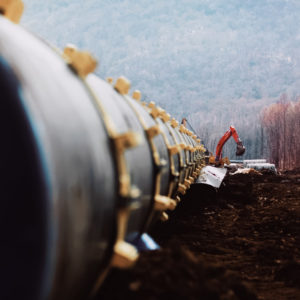Since Russia’s annexation of Crimea and its military intervention in eastern Ukraine in 2014, relations between the United States and Russia have become frosty. A plethora of sanctions have been imposed including export restrictions, visa bans and asset freezes.
In addition, President Trump has put pressure on our European allies to terminate construction of a natural gas pipeline called Nord Stream 2 that would transport large quantities of Russian gas under the Baltic Sea to a terminal in northern Germany. At present, close to half of Western Europe’s gas is supplied by Russia while eastern European countries are 75 percent dependent on Russian gas. The administration views growing European dependence on Russian gas as a strategic risk, but the European Union disagrees and construction of the pipeline is proceeding.
Now legislation has been introduced in Congress that would punish companies involved in construction of Nord Stream 2. Sponsored by Senator Ted Cruz of Texas and Congressman Adam Kinzinger of Illinois, the “Protecting Europe’s Energy Security Act of 2019” would impose sanctions on any entity involved in providing pipe-laying services for Nord Stream or any other Russian export pipeline. Targeted companies would be unable to secure credit from American financial institutions and denied access to their property in the United States while corporate officers could be ineligible to receive visas to enter the country.
If the goal of U.S. policy is to reduce European dependence on Russian gas, promoting American liquefied natural gas (LNG) may be a more effective strategy than fighting Nord Stream. In fact, this is already happening.
Last winter, U.S. companies shipped 48 cargos of LNG to Europe, second only to Qatar. Several European utilities have signed long-term agreements with U.S. producers like Cheniere, Dominion and Sempra Energy. Britain’s Centrica, along with Spain’s Naturgy, Iberdrola and Endesa, also have recently agreed to buy LNG from American suppliers.
Though Trump has pressured Europe to buy American gas for security reasons, market forces have been the biggest factor driving the fivefold increase in sales over the past year. Technological developments, in particular the “shale revolution,” have made the United States the world’s No. 1 natural gas producer and third-largest exporter of LNG. By the end of 2021, because of new and planned investments in liquefaction facilities and terminals, our LNG export capacity will triple to more than 10 billion cubic feet per day, making us the world’s No. 1 exporter.
The prospects for selling U.S. gas to Europe have never been brighter. During the second half of 2018, American LNG exports to Europe jumped 181 percent. Like the rest of the developed world, Europe is substituting natural gas for coal and nuclear in power generation and industrial processes. According to the International Energy Agency, gas consumption in the EU will jump by one-third just in the next six years, offering tremendous opportunities for U.S. LNG exporters.
Importing more American gas will also be a plus for European consumers and industries. Because U.S. gas is so cheap to produce, even adding in the costs of liquefaction and transportation, American LNG can compete in Europe with pipeline gas from Russia. Gazprom now acknowledges that exports from the United States have had a negative effect on its sales to Europe, which dropped 8 percent in the first quarter of this year.
There is room in the European market both for Russian and American gas. LNG imports from the United States and other countries are forcing Gazprom to compete on price while limiting the use of Russian gas as a coercive geopolitical tool.
Economic sanctions should always be used sparingly, as in the case of Iran where critical national security issues are at stake. But such is not the case with Nord Stream. The sanctions proposed by Cruz and Kinzinger would be counter-productive and could further damage U.S.-European relations while hurting our own oil and gas industry. What’s more, Nord Stream 2 is 70 percent complete, so U.S. sanctions are unlikely to halt construction of the project.

